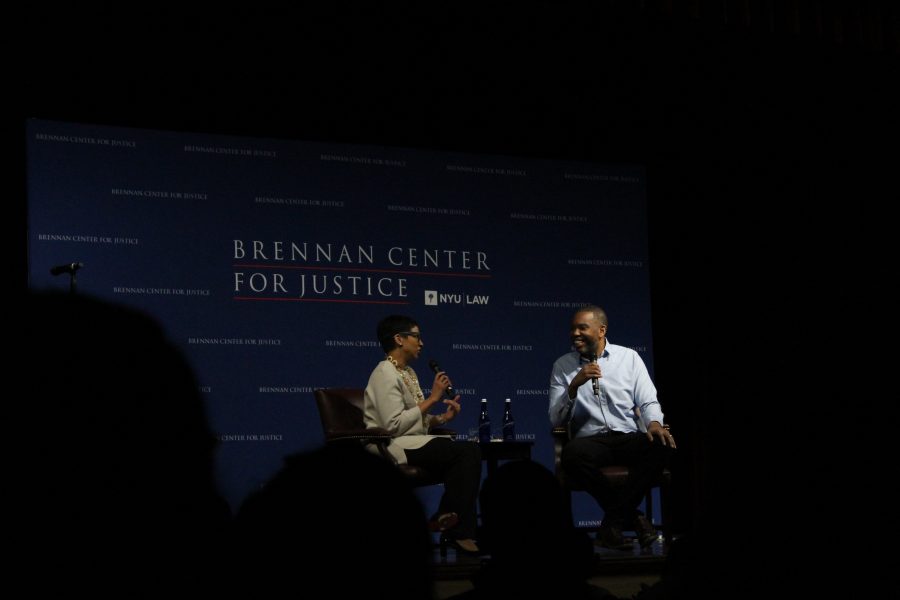Renowned author and journalist Ta-Nehisi Coates discussed mass incarceration and the #MeToo movement with law professor Melissa Murray in Vanderbilt Hall on Thursday.
NYU’s Brennan Center for Justice hosted the event, during which the Arthur L. Carter Journalism Institute professor spoke his thoughts on contemporary political issues, including New York State Congresswoman Alexandria Ocasio-Cortez, whom he interviewed on Martin Luther King Jr. Day.
“The big thing is that she has done an incredible job as a freshman who has only been in Congress for like three days,” Coates said.
When discussing #MeToo, Coates compared finding out about the pervasiveness of sexual harassment to white people hearing about red-lining for the first time.
“So #MeToo happens and stories appear, and had you asked me before the Harvey Weinstein stuff, do I think sexual harassment, sexual violence is a huge problem in Hollywood, I would say ‘yeah,’” Coates said. “If you said do you think it’s a problem in the workplace, I would say, ‘yeah.’ That’s an abstract ‘yeah.’ That’s not ‘well, he had his assistant who’s also a woman who invited me to the meeting under the pretext of her being there and that made me comfortable, but then she left the room.’ That’s institutional.”
Coates mentioned her ability to bring out certain issues, such as income inequality, before the conversation moved on to mass incarceration. Murray mentioned that some scholars do not think the issue is as pressing for middle-class black people, which Coates contended.
“Even if you’re middle class, you usually know someone that has been incarcerated, and I don’t know if that would be the same experience for a white NYU professor,” Coates said.
One student asked if there were any policies Coates felt could help ease out of the system of mass incarceration.
“That’s probably already happening, right? Giving felons back the right to vote, integrating them back into society — we saw action in the last administration on crack cocaine. All of that’s good,” Coates said. “[But a solution] would have to go beyond incarceration, right?”
Coates went on to say that the collective “we” would have to figure out why punitive measures are necessary for specific populations of people such as those with mental health, chemical independence, employment and education issues.
Coates said that due to the current tendency to punish these groups of people, he doesn’t see much hope in proposed policies changing the status quo.
“If the system is angling in that way, even if we could decarcerate, how do we know there wouldn’t be some sort of punitive form of justice that we would choose after that?” Coates said.
Email Victor Porcelli and Meghna Maharishi at [email protected]


























































































































































